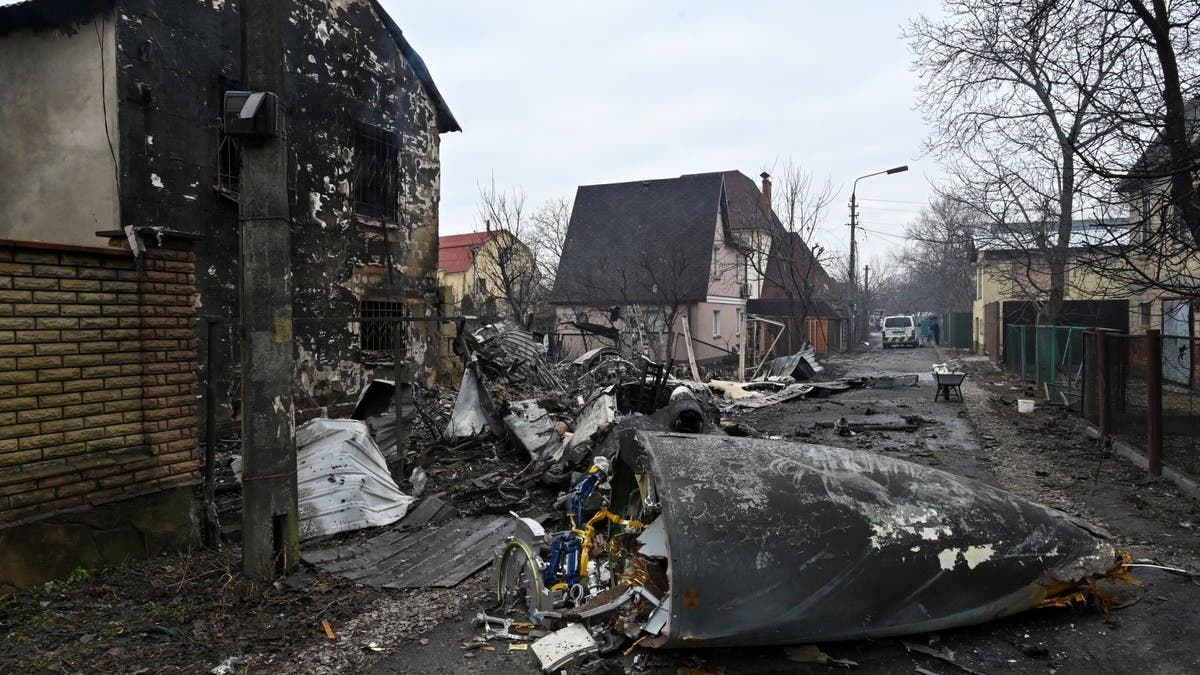Russia's invasion of Ukraine has prompted repeated calls from Ukrainian President Volodymyr Zelenskyy for an international no-fly zone to protect his country, but these have been roundly rejected by the US and its NATO allies, who say it could provoke all-out war in Europe.
Proponents, from street protesters in Europe to a group of foreign policy grandees in the US, say a no-fly zone is essential to save lives in Ukraine, but even some of US President Joe Biden's staunchest opponents in Congress have been adamantly opposed, with Republican Senator Marco Rubio warning it could bring about “World War III.”
No-fly zones came to be seen as a security panacea in the 1990s after the end of the Cold War. But experts say that even when they have been effective, this was only when enormous resources were deployed and the opponent was massively outgunned and underprotected, which is a far from the case with Russia, which remains a military, if not an economic, superpower.
What is a no-fly zone?
A no-fly zone is intended to protect vulnerable civilians in a conflict by preventing attacks from the air and can be a yearslong effort. To be effective, experts say, air forces need “air supremacy” over a region, not just air superiority.
This means not only control of airspace, but also destruction of air defense systems that present a threat to the operations. The 27 US foreign policy experts called for a “limited” no-fly zone to protect humanitarian corridors, but military experts say such operations would almost inevitably involve direct combat with Russian forces.
White House press secretary Jen Psaki said on Tuesday a limited no-fly zone over humanitarian corridors to allow safe evacuations from Ukrainian cities could still escalate the conflict, leading the US into war with Russia.
Why won't the US and its allies consider one?
“The only way to actually implement something like a no-fly zone is to send NATO planes into Ukrainian airspace and to shoot down Russian planes, and that could lead to a full-fledged war in Europe.
President Biden has been clear that we are not going to get into a war with Russia,” US Secretary of State Antony Blinken told a news conference last week after meeting European allies in Brussels.
“We are not part of this conflict,” NATO Secretary General Jens Stoltenberg said. Individual allies like Lithuania have called the Ukrainian demands for a no-fly zone “irresponsible.”
Russian President Vladimir Putin has warned Russia would view countries that joined a no-fly zone as “participants in a military conflict.”
Even if launching a no-fly zone did not precipitate a catastrophic all-out war with nuclear-armed Russia, there is no guarantee it would actually be successful.
Writing in the War on the Rocks online security platform last week, former US Air Force officers Mike Pietrucha and Mike Benitez said there was “no historical precedent to establishing and maintaining a no-fly zone against any meaningful resistance.”
Are no-fly zones effective?
Since the end of the Cold War, no-fly zones have been employed in a variety of theaters, including Iraq, Bosnia, Kosovo and Libya, with varying degrees of success and failure, but in each case against vastly inferior opposition.
Referencing a RAND study in the case of Kosovo, Pietrucha and Benitez noted that “despite a world-class air force’s best effort against a second-rate defense,” the US never gained air supremacy and vital surveillance aircraft required to support the operation had to be kept out of the region to avoid being attacked.
“Though Slobodan Milosevic did eventually capitulate, Operation Allied Force is generally viewed as an operational failure that happened to succeed — and that was over 20 years ago,” they wrote.
The two authors added that to enforce a no-fly zone today against a nation “with any semblance of artillery, man-portable air defense systems, and/or advanced surface-to-air missiles” was “neither operationally feasible nor politically appetizing.”
“The no-fly zone is the wrong tool for the wrong job and would create dangerous and destructive outcomes for the US and its NATO allies,” they concluded.
What about sending MiGs from NATO countries?
The US rejected a surprise offer by NATO ally Poland on Tuesday to transfer its Russian-made MiG-29 fighter jets to a US base in Germany as a way to replenish Ukraine's air force in its defense against invading Russian forces.
The proposal, officials and experts say, had a number of issues, not least the risk of drawing the US into conflict with Russia, as well as the logistics of moving the planes from Germany to Ukraine, and decisions on how to replace those Poland would be giving up.
“It is simply not clear to us that there is a substantive rationale for it,” Pentagon spokesman John Kirby said.
It is unclear what other options are being looked at in Europe to potentially provide jets to Ukraine.
Read more:
Russia may be using unguided 'dumb' bombs in Ukraine war: US official
Watch: Zelenskyy says children under wreckage as Russia strikes Mariupol hospital
Ukraine leader urges west to resolve Polish jet offer: ‘Send us planes’

 World3 years ago
World3 years ago
 World3 years ago
World3 years ago
 Business1 year ago
Business1 year ago
 Entertainment7 years ago
Entertainment7 years ago
 World7 years ago
World7 years ago
 Entertainment7 years ago
Entertainment7 years ago






